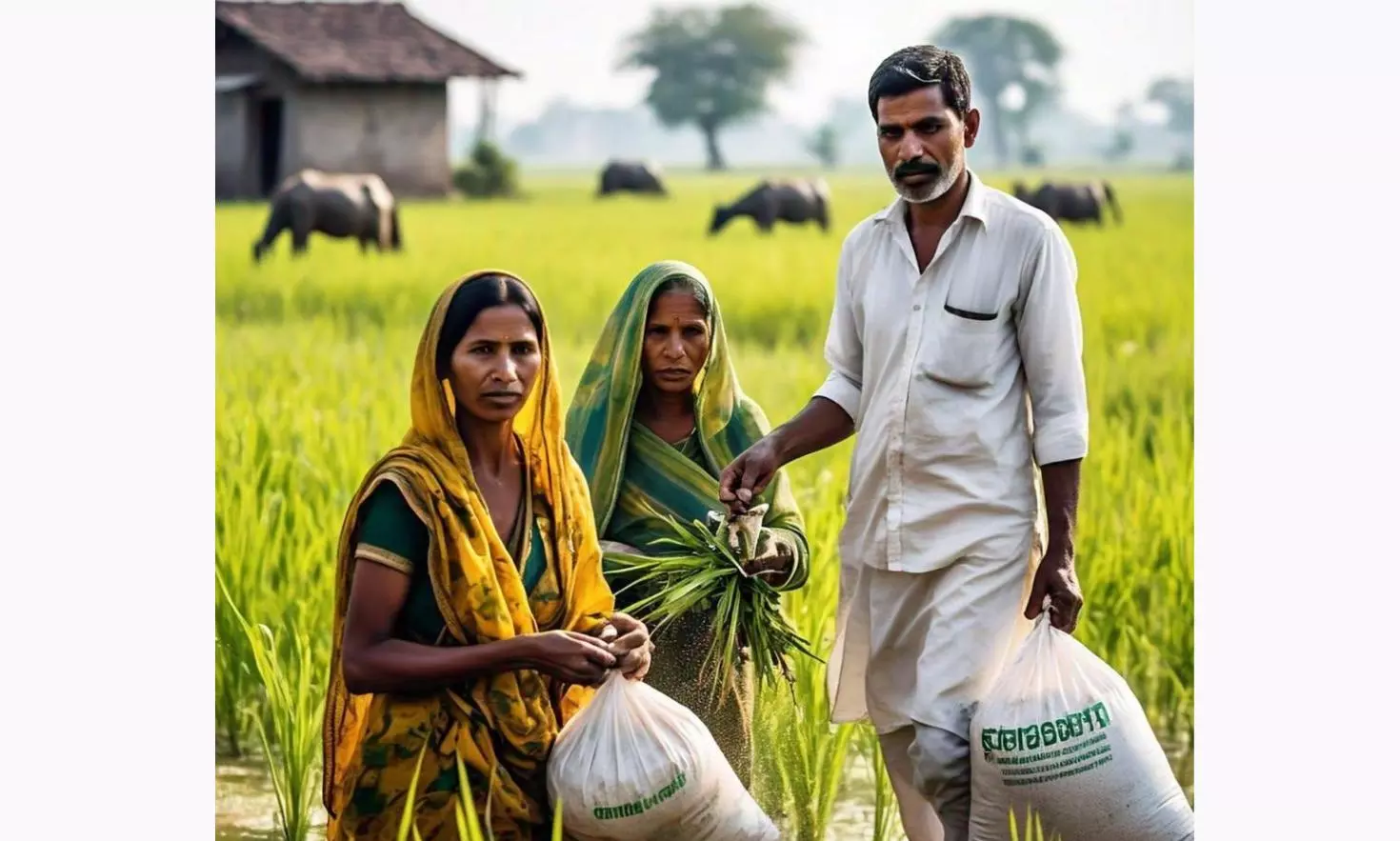Centre extends one-time special package for DAP fertiliser

New Delhi: Amid the ongoing farmers' agitation, the Centre on Wednesday announced two crop insurance schemes — Pradhan Mantri Fasal Bima Yojana (PMFBY) and Restructured Weather Based Crop Insurance Scheme (RWBCIS) — for one more year till 2025-26. The Union government also created a separate Rs.824.77 crores fund for technology infusion in the implementation of flagship schemes as well. It also extended an additional subsidy on di-ammonium phosphate (DAP) worth Rs.3,850 crores beyond December 31, 2024.
All the decisions in this regard were taken in a meeting of the Cabinet committee on economic affairs (CCEA) headed by Prime Minister Narendra Modi. Lauding the Cabinet decisions, the Prime Minister said that his government is fully committed to furthering the welfare of farmers.
“We are proud of all our farmer sisters and brothers who work hard to feed our nation. The first Cabinet of 2025 is dedicated to enhancing prosperity for our farmers. I am glad that key decisions have been taken in this regard,” Mr Modi posted on X.
Announcing these decisions after the Cabinet meeting, information and broadcasting minister Ashwini Vaishnaw told the media that PMFBY and RWBCIS have been extended to align it with the 15th Finance Commission period. “The schemes have received a positive response from the farmers and therefore, the allocation for PMFBY and RWBCIS has been enhanced,” Mr Vaishnaw said.
As per the Union minister, the total outlay for PMFBY and RWBCIS has been enhanced to Rs.69,515.71 crores for 2021-22 to 2025-26 from Rs.66,550 crores for 2020-21 to 2024-25. Both PMFBY and RWBCIS offer financial assistance to farmers suffering from crop loss or damage caused by various unforeseen events. When PMFBY covers crop losses based on yield risk, at the same time RWBCIS focuses on weather-related risks.
Asked about the ongoing farmer agitation in Punjab and why the government is unable to convince them, Mr Vaishnaw said, "If you had moved around during Haryana elections, farmers gave great feedback on 'andolan' versus real welfare versus 'good to farmers'… you would have yourself seen."
For the targeted infusion of technology in the implementation of the crop insurance schemes, the minister said the Cabinet also approved the creation of a separate fund for innovation and technology (FIAT) with a corpus of `824.77 crores. “The scheme, however, will help in the use of technology for faster assessment of crop damage, claim settlement and fewer disputes. It will also help in using digital technologies for easier enrolment and greater coverage,” Mr Vaishnaw said.
In a statement, the agriculture ministry also said the fund will be utilised towards funding technological initiatives under the schemes named YES-TECH, WINDS, etc as well as research and development studies.
Yield Estimation System using Technology (YES-TECH) uses remote sensing technology for yield estimation with a minimum 30 per cent weightage to technology-based yield estimates. “Nine major states are currently implementing, including Andhra Pradesh, Assam, Haryana and Uttar Pradesh. Other states are also being on-boarded expeditiously,” the ministry said.
According to the agriculture ministry, all efforts are made and will continue to be made to saturate all farmers of northeastern states on priority. To this extent, the Centre shares 90 per cent of premium subsidy with northeastern states. “However, due to the scheme being a voluntary and low gross cropped area in northeastern states, flexibility has been given to avoid surrender of funds and for reallocation in other development projects and schemes with fund requirements,” it said.
The Cabinet also extended additional subsidy on DAP beyond December 31, 2024, to help maintain retail prices of this key fertiliser at Rs.1,350 per bag of 50 kg, a move that could cost the exchequer up to Rs.3,850 crores.
Last year, the Centre had announced a one-time special package on DAP at Rs.3,500 per tonne, valid from April 1, 2024, to December 31, 2024, with a financial implication of Rs.2,625 crores to keep prices under check. The package was over and above the nutrient-based subsidy (NBS) fixed by the government on non-urea nutrients.
“The decision has been taken to ensure sustainable availability of DAP at affordable prices to the farmers,” an official statement said.

